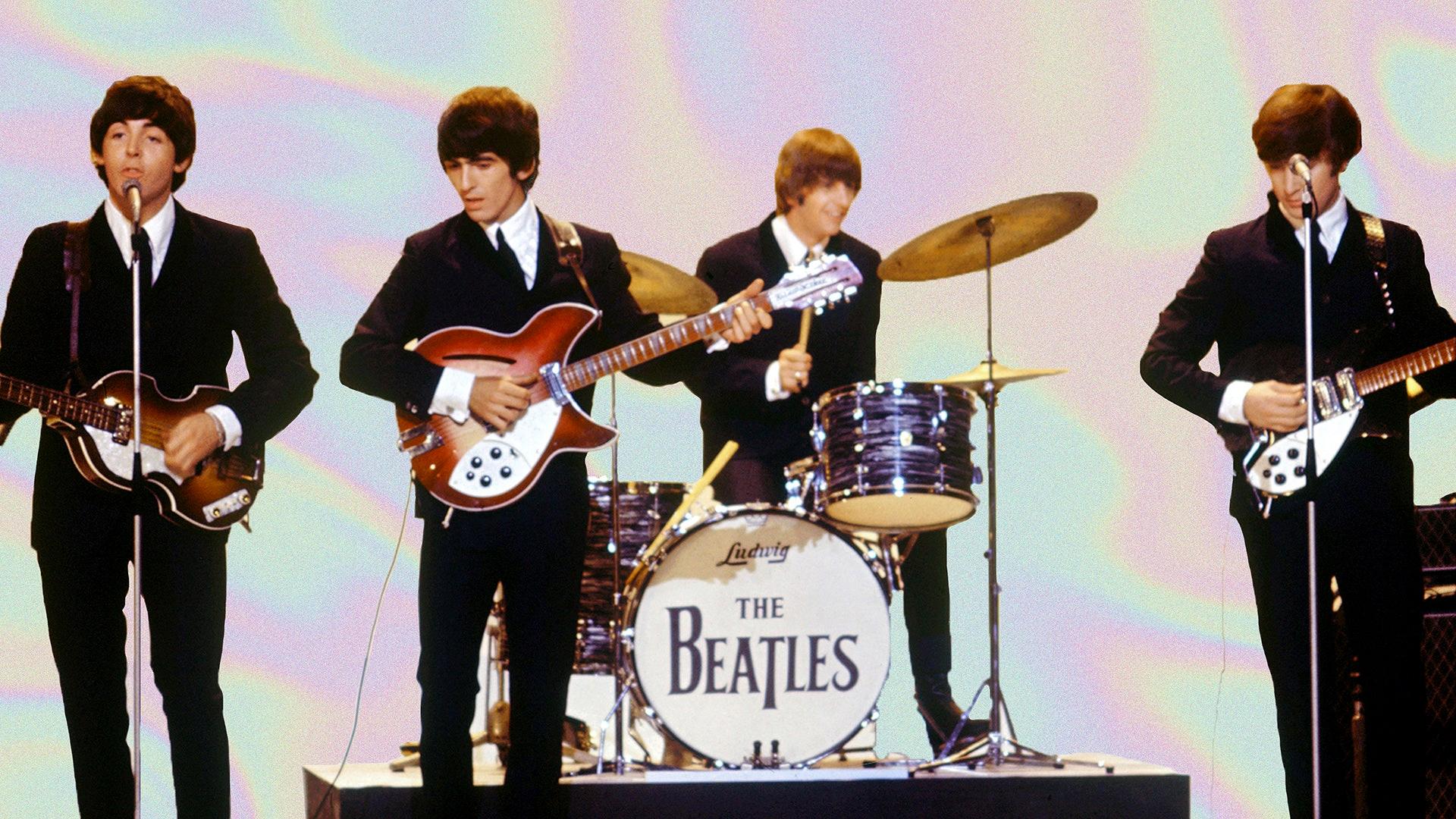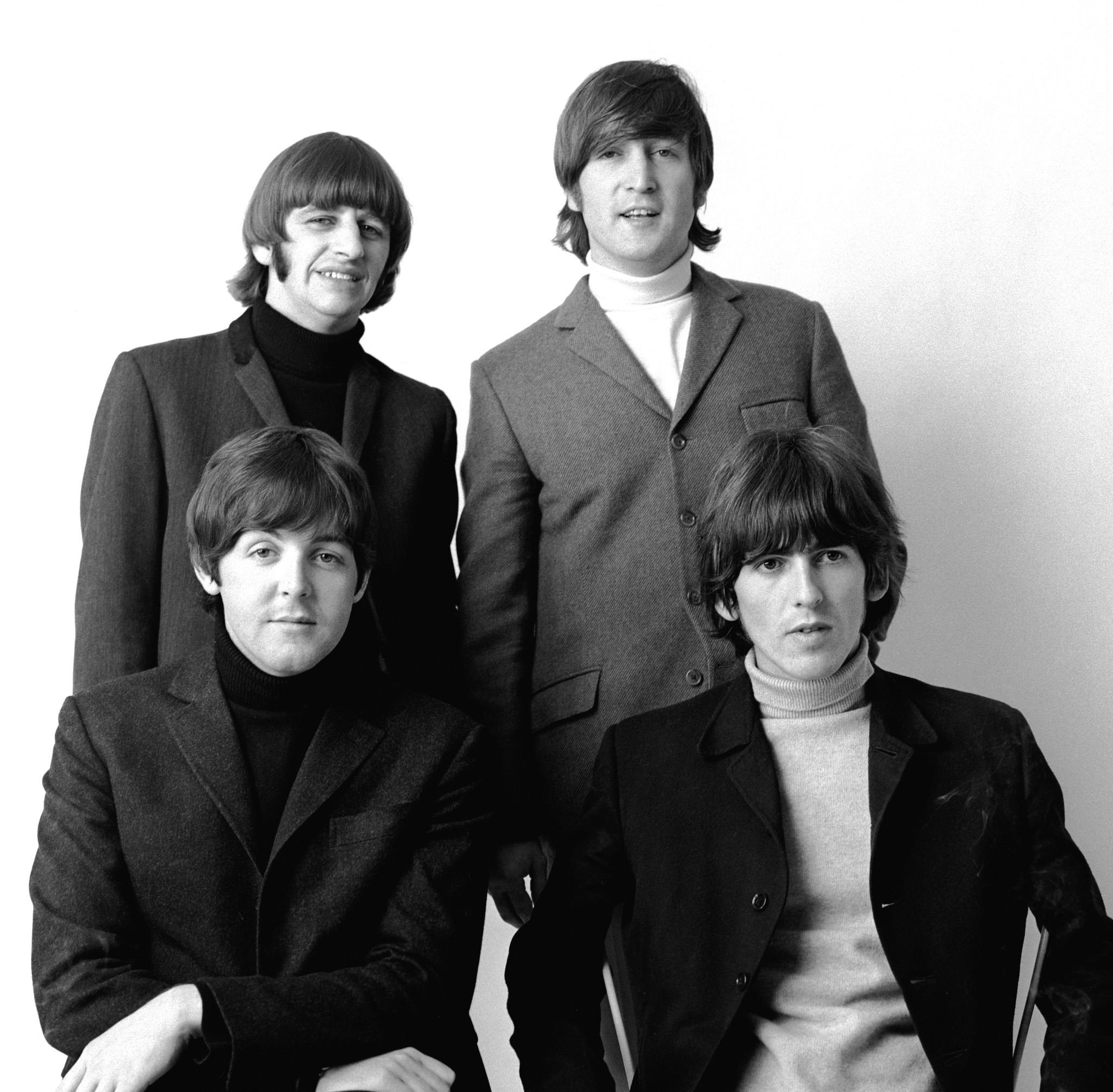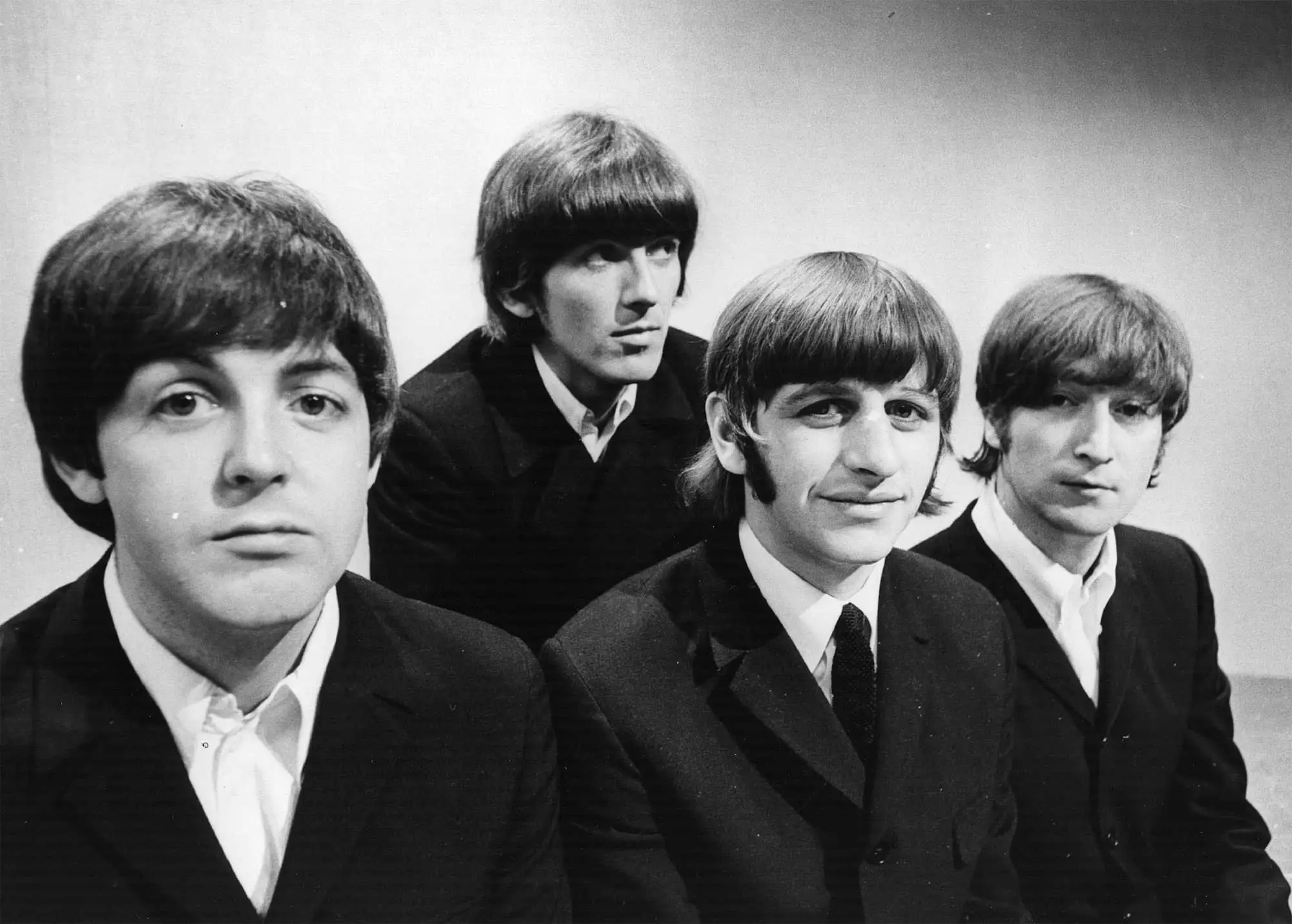The story of The Beatles is, in a way, truly legendary, a tale of four young men from Liverpool who, as a matter of fact, reshaped the entire sound of music. Yet, woven into the very fabric of their quick rise to fame is a figure often, you know, overlooked. We're talking about Stuart Sutcliffe, the original bass player, a person whose impact on the band, surprisingly enough, continues to echo through the halls of music and art even today. He's often known as the "fifth Beatle," and his journey with the group, though brief, was rather significant in shaping their early days.
His presence, actually, during those formative years, especially when the band was just finding its feet as a club act in Hamburg, West Germany, was quite important. This article will, in some respects, take a closer look at Stuart Sutcliffe, exploring his life, his contributions to the band, and the lasting impression he made. It's a poignant look, too, at a forgotten Beatle, offering a chronicle of the very early times for what would become the world's most influential pop group.
Understanding Stuart's role gives us, basically, a fuller picture of how The Beatles came to be the global phenomenon they are. His story, you see, is not just about music; it's also about art, friendship, and a path not taken. So, let's learn more about this intriguing person who helped set the stage for one of history's biggest musical acts.
Table of Contents
- Who Was Stuart Sutcliffe? A Look at The Beatles' Fifth Member
- The Artistic Path: Why Stuart Left The Beatles
- A Tragic and Lasting Impression
- Frequently Asked Questions About Stuart Sutcliffe
Who Was Stuart Sutcliffe? A Look at The Beatles' Fifth Member
Stuart Fergusson Victor Sutcliffe, often known as the "fifth Beatle," holds a unique spot in the early history of the world-famous band. He was, in fact, a key figure, though his time with the group was quite short. Born in Edinburgh, Scotland, on June 23, 1940, Stuart was, you know, a young man with a lot of determination for whatever he set his mind to. His life, while brief, left a notable mark on the beginnings of a musical legend.
His story is a rather sad one, actually, of the original bass player for The Beatles, who was also a very gifted painter. He joined the band in early 1960 and was part of their important tour in Hamburg. This was a time when the band was still developing its sound and stage presence, and Stuart was right there in the thick of it all.
Early Life and Artistic Inclinations
Stuart Sutcliffe came into the world in Edinburgh, Scotland, on June 23, 1940. From what we understand, he was a person with a good deal of resolve for his chosen pursuits. His passion, as a matter of fact, was painting, and he was quite good at it. This artistic bent was a defining part of who he was, influencing his choices and connections.
He was, you know, a friend of John Lennon from their time at the art institute. This connection through art was, basically, how he became involved with the band. It seems his artistic talent was very much his true calling, even more so than playing music. His friendly personality, too, was a noticeable part of his character.
Here are some personal details about Stuart Sutcliffe:
| Full Name | Stuart Fergusson Victor Sutcliffe |
| Born | June 23, 1940, Edinburgh, Scotland |
| Died | April 10, 1962, Hamburg, Germany |
| Age at Death | 21 years and 10 months |
| Cause of Death | Brain Hemorrhage |
| Role in The Beatles | Original Bass Player |
| Other Occupations | Painter |
| Key Relationship | Astrid Kirchherr (German girlfriend, photographer) |
Joining The Silver Beetles and The Beatles
Stuart Sutcliffe's involvement with the group began in early 1960. The band was then known as The Silver Beetles, and later, of course, became simply The Beatles. He was, in some respects, brought into the fold as their bass player. This was a crucial period for the band, as they were still forming their sound and lineup.
His friendship with John Lennon from art school, basically, played a big part in him joining. It was, you know, a time of experimentation and growth for all of them. The band at this point included Pete Best, George Harrison, John Lennon, Paul McCartney, and Stuart Sutcliffe. There's a well-known photograph of them from the Hamburg funfair in 1960, taken by Astrid Kirchherr, which captures this early lineup.
While he might not have been, perhaps, the most skilled bass player, his presence was significant. He was, after all, part of the group during their formative club days, helping to shape their identity and early look. His contributions, in a way, went beyond just the music.
The Hamburg Years: A Formative Period
The time Stuart spent with the band was primarily during their days as a club act in Hamburg, West Germany. These Hamburg performances were, actually, incredibly important for the band's development. They played for long hours, honing their skills and stage presence in front of demanding audiences.
It was during this period that The Beatles, you know, really started to gel as a performing unit. Stuart was right there with them, experiencing the raw energy of these shows. His time in Hamburg allowed him to be part of the band's growth, learning the ropes of performing and living the musician's life.
The experiences in Hamburg, basically, forged a strong bond among the band members. It was a period of intense learning and hard work, which, in a way, prepared them for the massive success that would come later. Stuart's participation in these foundational moments is a key part of his story.
The Artistic Path: Why Stuart Left The Beatles
Stuart Sutcliffe's journey with The Beatles, though impactful, was rather short. He made the decision to leave the band in July 1961. This choice was, you know, driven by his strong desire to continue his art career. It was, basically, what he truly loved and felt called to do.
His artistic talent was, in fact, quite notable. He was a gifted painter, and it seems that while music was an interesting venture, painting was his true passion. This personal inclination led him down a different path than his bandmates, a path that ultimately separated him from the group just as they were on the cusp of greater things.
A Passion for Art and Astrid Kirchherr
Stuart's decision to leave the band was, you know, deeply connected to his artistic pursuits and his relationship with Astrid Kirchherr. Astrid, a German photographer, was also his girlfriend. They met in Hamburg, and she played a significant role in his life and artistic development.
He wanted to focus entirely on his art, and Hamburg, in a way, offered him the perfect environment for that. When the band returned to Liverpool in 1961, Sutcliffe, actually, remained in Hamburg. This choice showed his commitment to his artistic calling and to being with Astrid. She photographed the band often during their Hamburg days, capturing iconic early images, including the one with Pete Best, George Harrison, John Lennon, Paul McCartney, and Stuart Sutcliffe at the funfair in 1960.
His artistic style, which was, in some respects, quite distinct, might have also influenced the band's early visual presentation. Stuart was, basically, a bohemian artist, and his unique outlook, in a way, certainly added to the group's image during their formative years.
His Impact on The Band's Early Image
Stuart Sutcliffe is often considered, you know, the person who played a major role in shaping the band's image. His influence, in a way, went beyond just playing the bass. He was a bohemian artist, and his sense of style and artistic sensibilities, basically, helped define the early look and direction of The Beatles.
His presence, actually, contributed to the group's overall artistic vibe during their Hamburg club days. This was a time when they were experimenting with their sound and their appearance. The band's image architect, some might say, was Stuart, making him a tragic figure whose contributions, nevertheless, were quite important.
He was, in some respects, instrumental in setting the stage for their unique visual identity. This early image, crafted with Stuart's input, helped them stand out. You can learn more about the broader history of early rock and roll music, which influenced many bands like The Beatles, by checking out a well-known music resource like this music history archive.
A Tragic and Lasting Impression
Stuart Sutcliffe's story, sadly, has a very tragic ending. His life was cut short at a very young age, which makes his contributions to The Beatles even more poignant. He passed away, you know, before the band achieved their massive global fame, making him a truly "forgotten Beatle" in some people's minds.
Despite his short time with the band and his even shorter life, his influence, basically, remains a topic of discussion among fans and historians. His story serves as a reminder of the many individuals who played a part in the beginnings of legendary groups.
The Loss of a Young Talent
On April 10, 1962, Stuart Sutcliffe, the original bassist for The Beatles, passed away. He was, actually, only 21 years old at the time, dying due to a brain hemorrhage. This sudden loss was, you know, a very sad event for those who knew him and for the band.
His death occurred just as The Beatles were on the verge of their major breakthrough. Ringo Starr, as a matter of fact, replaced Pete Best in 1962, after Sutcliffe had already left the band in 1961. Stuart's passing meant he never saw the full extent of the Beatlemania that would sweep the world. For instance, on February 7, 1964, The Beatles arrived in New York City to unprecedented excitement and hysteria, met by thousands of fans from the instant they landed at Kennedy Airport. This was the true beginning of Beatlemania, a phenomenon Stuart did not witness.
The tragic final chapter of Stuart Sutcliffe, the "fifth Beatle" who died at 21, is a sad part of the band's early history. Despite his brief life, this bohemian artist, basically, deeply influenced the initial image and direction of the group. His legacy, you know, continues to resonate.
His Enduring Place in Beatles History
Stuart Sutcliffe is long considered, in a way, the person who played a major role in the early days of The Beatles. His contributions, though not musical in the long run, were, you know, very important for their initial development. He helped shape their identity and artistic leanings during a crucial period.
Even though he left the band and passed away so young, his story is, basically, an essential piece of The Beatles' overall narrative. Bill Harry, who would become editor of Mersey Beat, was, you know, one of those who chronicled these early days, including Stuart's part in them.
His impact on the band, especially in terms of their image and initial artistic direction, truly continues to resonate in the world of music and art. The original fifth Beatle, Stuart Fergusson Victor Sutcliffe, died 60 years ago, on April 10, 1962, at age 21 and 10 months. His memory, in some respects, helps us understand the full journey of the group.
The "White Album," for example, which was released on November 22, 1968, on the fifth anniversary of their second album, "With The Beatles," featuring a total of 34 new tracks, shows how much the band grew and changed. Stuart's early involvement, in a way, laid some groundwork for that growth, even if he wasn't there to see it. You can explore a collection of music videos by The Beatles, showcasing their timeless hits and iconic performances, to see how their image evolved, too.
Frequently Asked Questions About Stuart Sutcliffe
Was Stuart Sutcliffe really the "fifth Beatle"?
Yes, he is often referred to as the "fifth Beatle." This title, you know, acknowledges his significant, though brief, role as the band's original bass player. He was, in fact, part of the group during their formative years, especially their time playing in Hamburg. His influence on their early image and direction was, basically, quite notable.
Why did Stuart Sutcliffe leave The Beatles?
Stuart Sutcliffe left The Beatles in July 1961 because he wanted to focus on his art career. He was, you know, a gifted painter, and he felt a strong pull towards pursuing art full-time. He also wanted to stay in Hamburg with his German girlfriend, Astrid Kirchherr. His passion for painting was, in some respects, his true calling.
Did Stuart Sutcliffe play on any official Beatles records?
No, Stuart Sutcliffe did not play on any of The Beatles' official studio recordings released by EMI. He was, in fact, with the band primarily during their early days as a club



